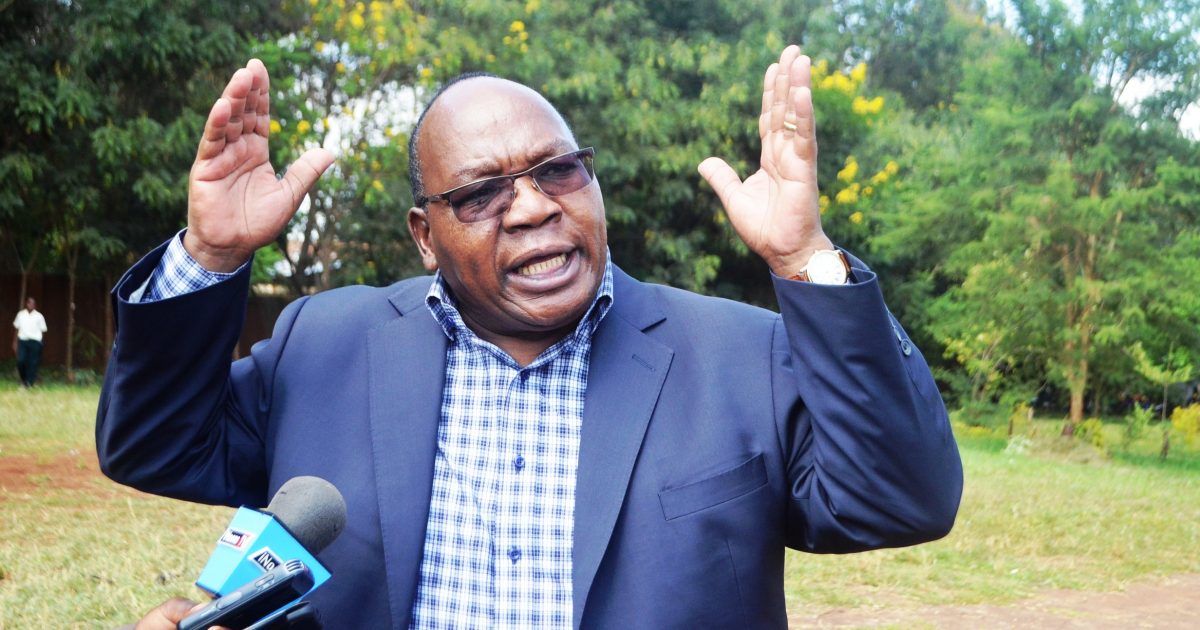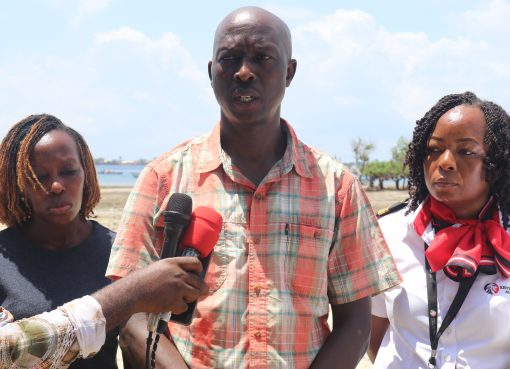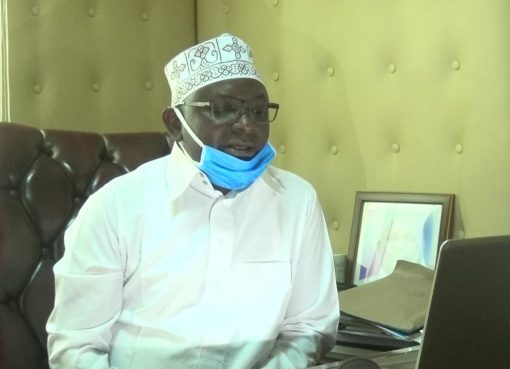Residents of Mwea constituency have commended the government and President Uhuru Kenyatta for the Thiba dam and Wanguru stadium projects.
Area Member of Parliament Kabinga Wachira said the two projects will have a turnaround effect on the residents and they have a reason to be grateful to the president
Wachira said apart from the two projects, Wanguru town is getting a facelift after the president ordered the improvement of the roads in the town to bitumen standard.
“When the president visited Mwea early last year, he found the town in very dilapidated situation, the stadium was flooded and the road was impassable,” Kabinga said.
He said Mwea residents will forever be grateful to President Kenyatta for the transformation the projects will have in the area.
“Thiba dam project, once completed by December this year, will reliably double rice cropping season, currently this is constrained by vagaries of the weather,” Wachira said
He said the project will also, expand the rice production area by 10,000 acres in Mutithi section, doubling of rice production from the current 120,000 metric tons to over 250,000 metric tons, thus supporting the Big four agenda specifically achievement of 100 per cent food and nutritional security.
Wachira said the water reservoir will also triple Mwea rice economy from the current Sh 9 billion to over 20 billion, saving on the current expenditure on foreign currency through reduced rice imports.
Further benefits though not very pronounced Wachira said includes the provisions of piped drinking water to Wamumu, Thiba, Kangai, and Mutithi wards through Tana Water Works Development Agency following the successful lobbying of the redesigning of Thiba dam.
He said initially the dam was meant to provide irrigation water but the residents will also benefit from the drinking water at the completion of the project.
“The unique thing which is evidence is that these projects have started and will be completed at a time most similar projects have stalled across the country,” Wachira said.
Data from the Kenya National Bureau of Statistics show that Kenya imports rice worth about Sh 40 billion every year largely from Pakistan, Thailand, India, and Vietnam.
It is estimated that with the completion of Thiba dam, this amount will be reduced by half or even more if it succeeds in improving more water to allow for three seasons of rice per year, unlike the current one season.
Mwea Rice Irrigation Scheme manager Innocent Ariemba said while the current rice production during a good season is about 100,000 to 120, 000 tones or about 80 percent of Kenyan total rice production, it has been achieved without dedicated water flow.
He said the scheme is fed by direct water flow from Thiba and Nyamindi rivers without a dam.
“But Thiba dam will provide a holding ground for water, ensuring controlled flow even during the times of lower rainfall,” Ariemba said.
He said there is much more opportunity as by the time the dam is finished, ongoing research on better yielding rice is likely to have reached the farm level.
“Rice farms are also likely to be more mechanized by then. The storage of rice will have improved, eliminating post-harvest losses,” Ariemba said.
He said more farmers will also be educated on modern farming methods to ensure that they harvest more bags of rice per acre than they currently do.
For instance, while Kenya produces on average 4 tons of rice per 2.5 acres, Egypt produces double that at 8 tons while Vietnam produces 6 tones, same as china, Pakistan and India.
He said rice imports into Kenya yield the same tonnage as Kenyan farmers, according to data aggregator index which therefore means Kenya has a very big opportunity to become self-sufficient in rice if it can increase its yields per acre.
Ariemba said the dam project will also help in the stabilization of the irrigation water supply, allowing double cropping with the area under irrigation increasing from 25,000 cares to 35,000 acres.
The construction of the Thiba dam is being financed in partnership with Japanese government through Japan International Cooperation Agency (JICA).
At completion, the dam will be 40 meters tall and 1-kilometer-long and is expected to have a holding capacity of 15 million cubic meters.
The construction was initially expected to take three years and seven months, meaning it would have been completed around July 2020.
Thiba dam project was officially launched on November 23 2017 by President Uhuru Kenyatta is being constructed at Rukenya in Gichugu constituency, about four kilometers from Kutus town, the County headquarters.
Kenya produces 100,000 tons of rice annually which is not enough to meet the local demand of 500,000 tonnes.
by Irungu Mwangi





